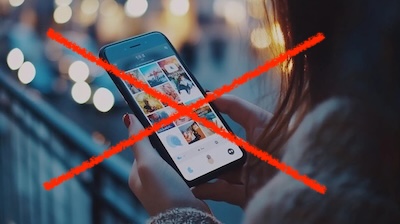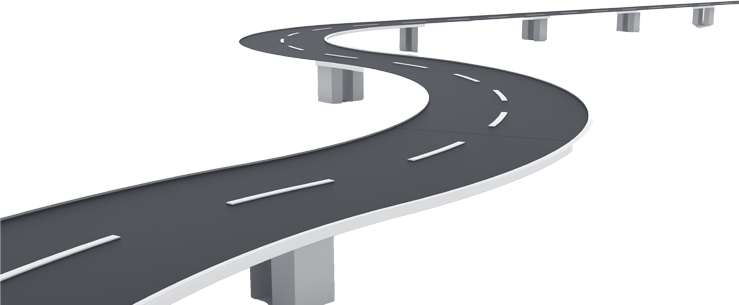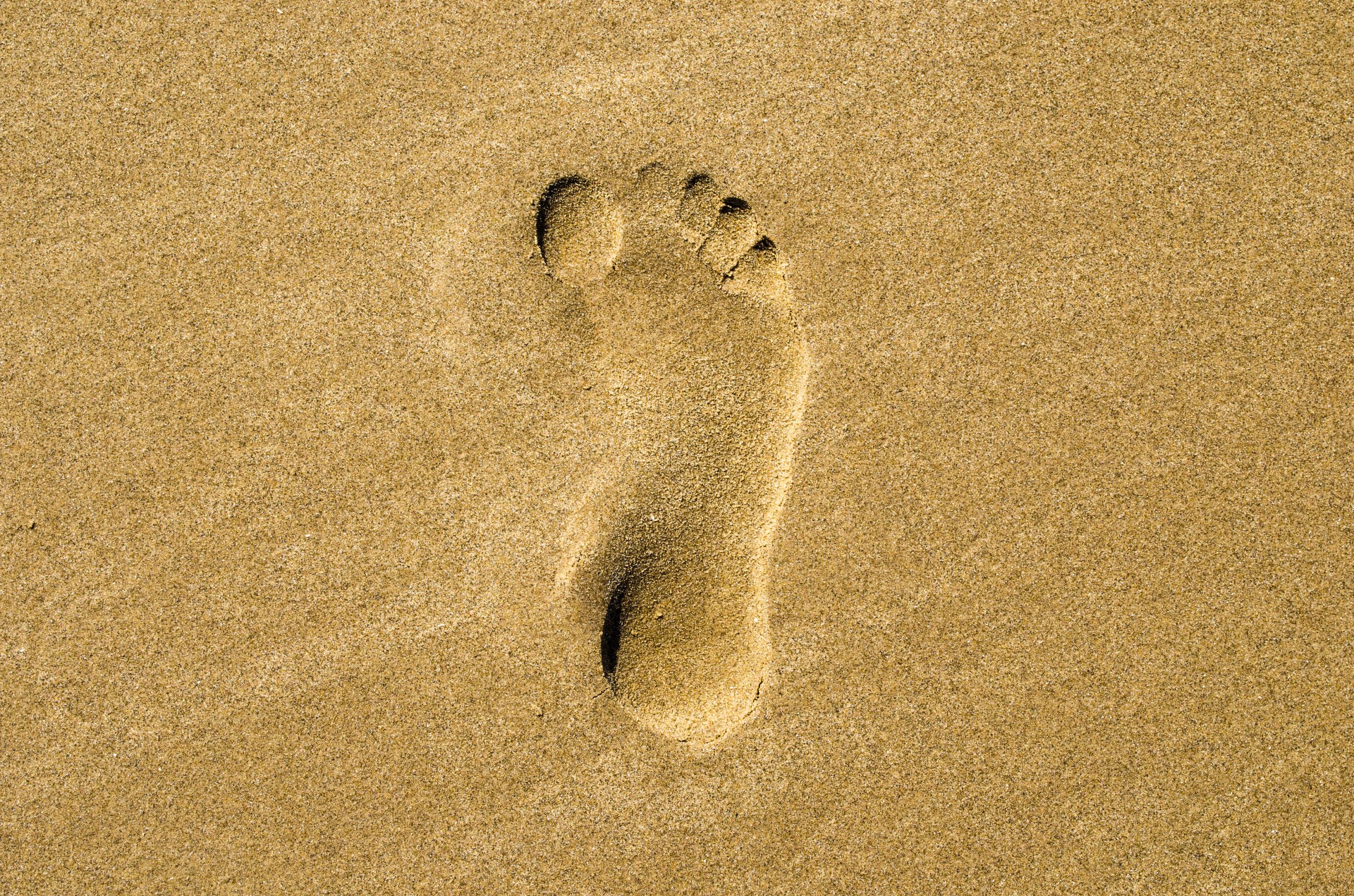What to do on your (social media) vacation?

Table of Contents
Stop the Scroll
I teach a class at Princeton called the Sociology of the Internet. Famously, one of the first exercises I make my students do is to go off their favorite social media app for 48 hours. The color typically drains from their faces when I announce it, but it always turns out to be one of the most impactful assignments in the course.
At the end of 48 hours, they have gained a new perspective on social media and its role in their lives. Some can't wait to go back online and count down the minutes until they can log in again. The majority reinstall but make themselves some guidelines to stick to moving forward. Stil others still choose never to go back. Why?
There's an old Yiddish saying, "To a worm in horseradish, the whole world is horseradish." This is how I feel about all of us endlessly scrolling on social media. Like the proverbial worm, we have no perspective on what we are doing, why we are doing it, and what we could be doing differently. We may think it's all pretty great, but we are just swimming in horseradish.
For my students who grew up in a world dominated by Facebook, YouTube, Snap, TikTok -- they have never known anything different. Taking a break forces them out of the horseradish for a day or two. They finally gain enough perspective on their behavior to analyze it. And what they find isn't always what they expected.
Take a day to #stopthescroll or invest in a day without corporate, algorithmically enhanced social media. What should you do on your social media vacation? Here are some options based on my own departure from the platforms.
But first, some grace for ourselves. Because --
We've been hacked
It's not our fault that it's hard to step away. The social worlds online we inhabit are extremely compelling, and that's intentional. For one thing, they are deeply plugged into our social connections, tying us together at great distances, offering us support for our needs, questions, and opinions, and connecting us to information and friendship. There is a social cost to leaving your friends and family online as offline.
But honestly, we've all been human-hacked. Social media companies knew they would be hijacking our relationships to build their empires. Their businesses evolved at the same time as the sociological science of network analysis. The result is a kind of network effect called "lock-in." Once you're in with all your friends, and the platforms have made ancillary services so easy to access, it's extremely hard to walk away.
They also hacked our psychology. The "infinite scroll" was invented intentionally because it is a way to keep us wanting more, meaning we spend more time on site and make more money with our eyeballs for social media companies. The first companies to use this technique, Instagram and Snap, learned about it through taking psych classes at Stanford, and they made billions. They were also the first to use notifications (which we used to use sparingly, or in context) so heavily in order to constantly draw users' attention toward the app. Psychologically, we just can't resist.
Enter algorithms to keep you watching through personalized content, and the personal data economy trap is complete.
It's on purpose, but it didn't start out this way. Early work on social media online demonstrated the important role that these connections play in fostering our identities, connecting us to communities that matter, teaching us important things about other people and places in the world. That work still matters.
That was before the desparate monetization of our attention and our relationships. Now, infinite scroll and attention hacking are everywhere. And our attention is always elsewhere.
Even when we're mad about social media we post about it on social media. That's on purpose too. The only measurable relationship between "user engagement" (the numbers that drive up profit) and the emotions users experience is through outrage. In other words, algorithms that incentivize us to stay on the platform long enough to turn a profit . We have built Skinner boxes that are also Outrage Machines.
It doesn't have to be this way. Non-profit social systems like Mastodon don't have the algorithms attached (they do have infinite scroll though, hrmmm) so they don't leave us feeling inflamed. They aren't collecting our data. They don't care if we log in or not. Our connections are up to us. So is our time spent and our relationships nurtured.
In my view, this is time well-spent online. The rest, I live happily without -- and you can too. Here is what I did to gain perspective when I went off algorithmic, profit-oriented social media.
Choose your Own Adventure
1. Go outside
I'm serious. Take a walk. Or a bike ride. Just relax and smell some flowers. Try to be present in the moment without worrying about what is going on somewhere out there in the world. It doesn't require your attention. Your attention is valuable -- don't give it away for other people to monetize. Also, social media feeds are optimized for making us feel a kind of urgency, even anxiety and outrage. You can moderate this by taking your attention elsewhere: especially to some part of nature that is calming, regenerative, and meaningful to you.
2. Track your (newfound) time
Have you ever looked up and realized an hour has passed with you just scrolling through feeds? We lose track of time with the endless scroll because there is no sense of how long or how deep it goes to pace ourselves. Most phones have a "Screen Time" counter. Pay attention to how much yours goes down by the end of the day when you #stopthescroll. You'll have a clearer picture of the time you have regained in your life: and maybe a better idea of what to do with it instead.
3. Make a list of hobbies -- and try one
When I first went off Facebook in 2015, I was a new mom and a new professor, and my free time was basically zero. I wrote down all the things I felt like I didn't have time for anymore: play an instrument, go to the gym, learn a language. I thought it was my job and newfound parenthood keeping me away from the things I loved -- but it turned out to be Facebook. I learned a Bach prelude in a week. I brushed up my Spanish. These kinds of activities aren't just about skills, they are about our identity: doing the things that make us feel like us. Social media fills that void by showing us stuff that's personal to us, but it's a poor substitute. What will you try?
4. Call a friend
Actually call them. When we scroll through social feeds we feel connected to people we love whose activities we get to witness, virtually. You can replicate -- actually, enhance and improve upon! -- that feeling by actually just calling a friend. Personally, when I went off the socials in 2015 I wrote down the phone numbers, birthdays and email addresses of my closest friends before blowing away my account. Then I put that list on the wall. Anytime my thumb wandered over to where the big blue F used to be on my smartphone home screen, I reached out to someone directly --absent the algorithmic middle man -- to have a good, old fashioned conversation.
5. Read a book
There is something about your eyes scanning paper as opposed to a screen that is reassuring and calming, instead of blasting our brains with blue light. You might learn something new, or you might immerse yourself in a world of fiction. It's a great escape. We even learn differently and retain information differently based on screen versus on-paper reading.
6. Play with your kids
Or your dog, or your hamster. Or your grandfather or your sister. We spend so much time supervising, walking, or attending activities with our loved ones and furry friends but not as much time actually playing with them or engaging directly. Actually be present while you're pushing someone on the swing or going out for a walk.
7. Just be
We often scroll because it's entertaining in the interstitial moments in our lives. In those moments where we could be present or daydreaming, engaging our brains in some way, we are instead lolling our time away doing something that is far less nourishing. Try sitting on the subway without scrolling. Just try it.
8. Get involved
We often feel we are really passionate about an issue because we tweet about it! Yeah! That's really sticking it to the man! Except it isn't -- because your passionate engagement in activities online is actually making money for the kinds of people and organizations you're likely trying to decry. That's not to say that online expressions aren't valuable, but they are fragile and less impactful than actually giving of your time and presence. So find the organization or communities you can support and actually show up for them. Your time and energy will go far further.
9. Listen to something
Music. An audiobook. Go to a concert. Catch a poetry reading. Engage another one of your senses that isn't vision. Plus, listening to or enjoying the arts is a precious opportunity. Artists will thank you.
10. Think it over
Take the time away from social media to reflect on what you use it for. What (or who) do you miss the most? Are you mostly a lurker, worried that your friends will miss seeing your "likes"? Or are you only happy when you are posting and replying? Which connections matter the most to you? Could you access them differently? Could you use a different system (like Mastodon) to scratch the same itch? Or limit your social media to just one or two topics or needs?
To a worm in horseradish the world may be horseradish. But you don't have to be that worm. Take a step outside. Use the opportunity to reflect on your habits. And think constructively about what you'd like to change. It all starts with a single step. But we have to interrupt out habits in order to change them. And that means we must #stopthescroll.



